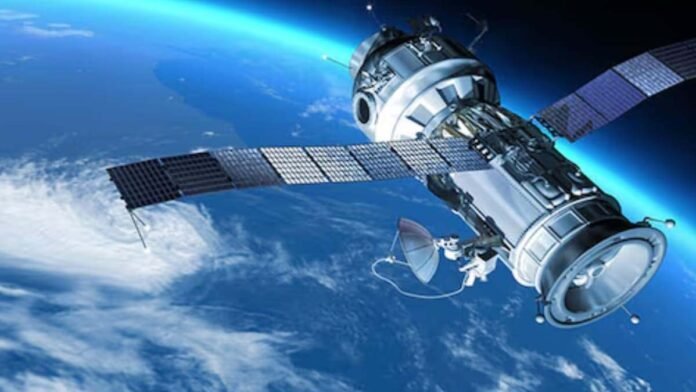New Delhi. India is launching an ambitious indigenous space defence project led by ISRO, called “Satellite Bodyguards,” designed to protect Indian satellites from hostile threats. This ₹27,000 crore initiative aims to deploy a fleet of 50 advanced satellites by 2029, with the first launch expected as early as next year. These satellites will provide real-time threat detection with cutting-edge technologies like LiDAR for precise 3D mapping of nearby orbital objects and will operate alongside a comprehensive ground-based surveillance system.
The urgency of this project gained momentum after a near-collision incident in 2024, where an adversarial satellite came within one kilometre of an ISRO military satellite orbiting at 500–600 km. This near-encounter highlighted the vulnerability of Indian space assets crucial for military functions including mapping and surveillance.
China’s vast space presence—with over 900 satellites—and its ability to support Pakistan during regional conflicts emphasises the strategic threat India faces in space. The project aims to ensure sovereignty and security in this contested theatre.
The bodyguard satellites will be equipped with sensors for surveillance, rapid manoeuvrability propulsion systems, and potentially countermeasures to deter enemy interference including signal jamming or physical attacks. LiDAR technology will enable 3D detection of threats in orbit more accurately and faster than conventional radar. These satellites will be integrated with upgraded ground-based radar and telescope networks for continuous 24/7 monitoring and a layered defence posture.
The project, commonly referred to as Mission Rakshak, involves a significant public-private partnership with Indian private firms contributing to satellite construction alongside ISRO. This collaboration is part of a broader ₹27,000 crore Space-Based Surveillance Phase-3 (SBS-3) program, which will deploy 50–52 satellites by 2029. The fleet will enable autonomous coordination with advanced AI for real-time military and geo-intelligence collection. This indigenous approach strengthens India’s Aatmanirbhar Bharat vision in defence technology and space security.
These satellites will act as vigilant sentinels, orbiting alongside valuable assets to detect and counter threats early, ensuring seamless protection of Indian space infrastructure vital for national security and civil applications.
This development places India among a select group of countries with active space defence capabilities, addressing emerging space warfare challenges posed by close-proximity satellite manoeuvres and adversarial tactics demonstrated particularly by China.
ISRO’s indigenous Satellite Bodyguards project will create a robust, multi-layered space defence shield, leveraging advanced sensing and AI to safeguard India’s strategic space assets from evolving threats, thereby marking a strategic pivot in India’s military defence architecture into outer space. This represents a future-ready approach to space security paralleling terrestrial air defence systems like the S-400, adapted for the space domain.





